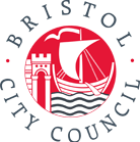Can peer power make teenage girls more active?
A new study by the University of Bristol will test whether teenage girls’ activity levels can be increased through deliberate intervention from their peers, rather than their families or teachers.
- 2nd July 2018
Researchers have been awarded £840,000 from the National Institute of Health Research (NIHR) to test the this ‘peer power’ approach with over 1,000 Year 9 girls from 20 schools.
Girls will nominate peers in their year who they respect and trust to receive training designed to show them the benefits of exercise. They will then use their influence to subtly encourage their close friendship groups to be more active and ultimately create new norms.
It’s hoped the intervention will help address concerns that most adolescent girls in the UK do not meet government physical activity recommendations of doing an hour of moderate to vigorous physical activity each day.
The new project, led by Professor Russ Jago and Dr Simon Sebire from the University of Bristol’s Centre for Exercise, Nutrition and Health Sciences in the School for Policy Studies, will assess whether the PLAN-A (Peer Led physical Activity iNtervention for Adolescent girls) intervention is effective at addressing the steep reduction seen in girls’ physical activity as they move through their teenage years.
A pilot study, with six secondary schools and over 400 female pupils, has shown promising results, with girls doing an extra six minutes of moderate to vigorous physical activity and cutting their sedentary time by 23 minutes per day.
It also showed the year-wide intervention was liked by pupils, parents and teachers and that it had the potential to stem the decline in adolescent girls’ physical activity and be cost-effective.
Professor Jago said: “The influence of peers during adolescence is very strong, and the PLAN-A has the potential to harness this to address low levels of physical activity amongst girls. We are excited to test the effectiveness and cost-effectives of the intervention more widely.”
Dr Sebire added: “We carefully co-designed the PLAN-A intervention with teenage girls and as a result peer-supporters subtly and positively support their friends to be active in their own way. If effective, PLAN-A could be rolled out to schools as part of their work to help young people be more active.”
Sport England has provided an additional £30,000 for the delivery of the intervention in the 10 schools which will receive the PLAN-A programme.
Sport England’s Executive Director Mike Diaper said: “We know that as we get older, the participation gap between the genders widens so we are working with a range of partners on different approaches that could help keep young women and girls engaged with sport and activity.
“The PLAN-A project is really exciting because it will help identify how positive peer power could be used to influence the behaviour of teenage girls and keep them active. The lessons we learn will benefit girls across the country.”
The PLAN-A project (Peer-Led physical Activity iNtervention for Adolescent girls) is run in collaboration with colleagues in the Centre for Public Health and the Bristol Randomised Trials Collaboration in the University of Bristol’s Medical School.






